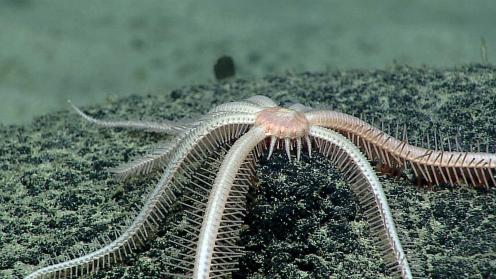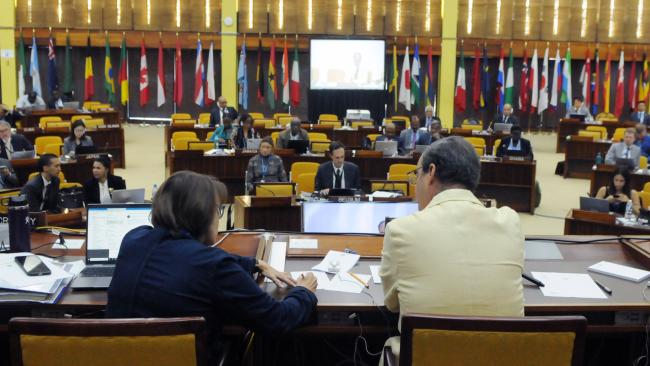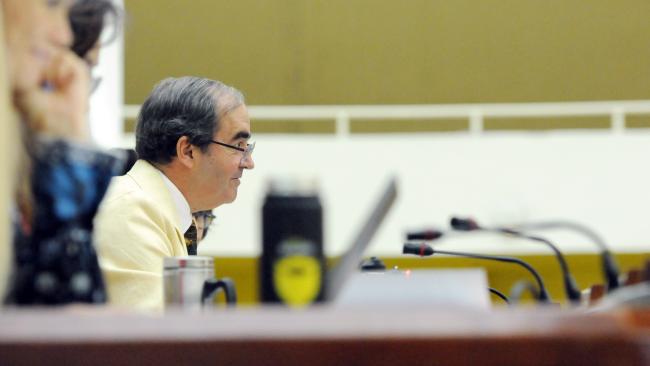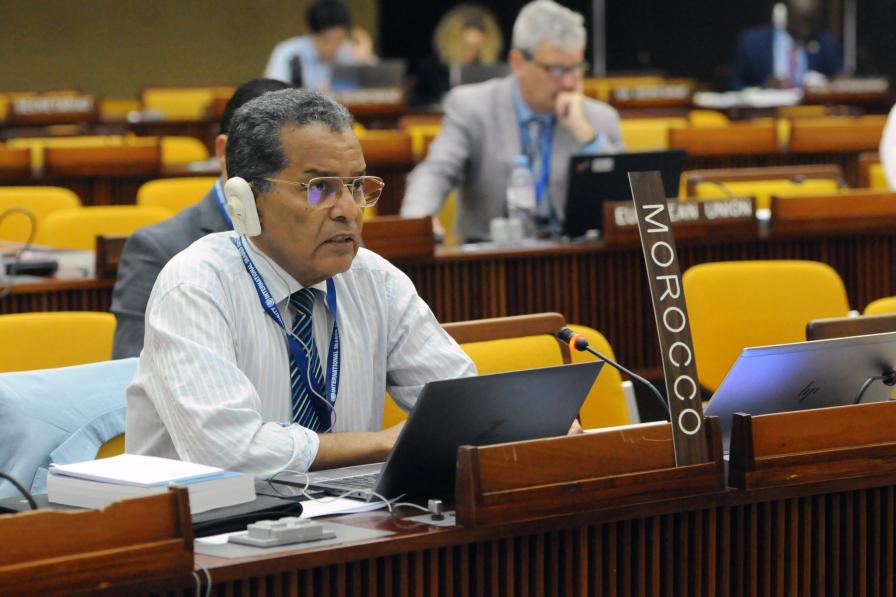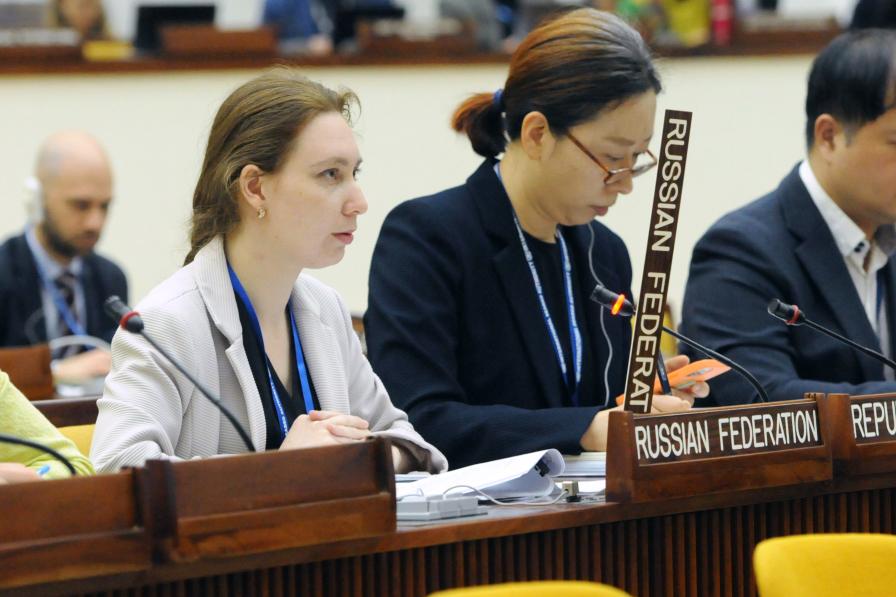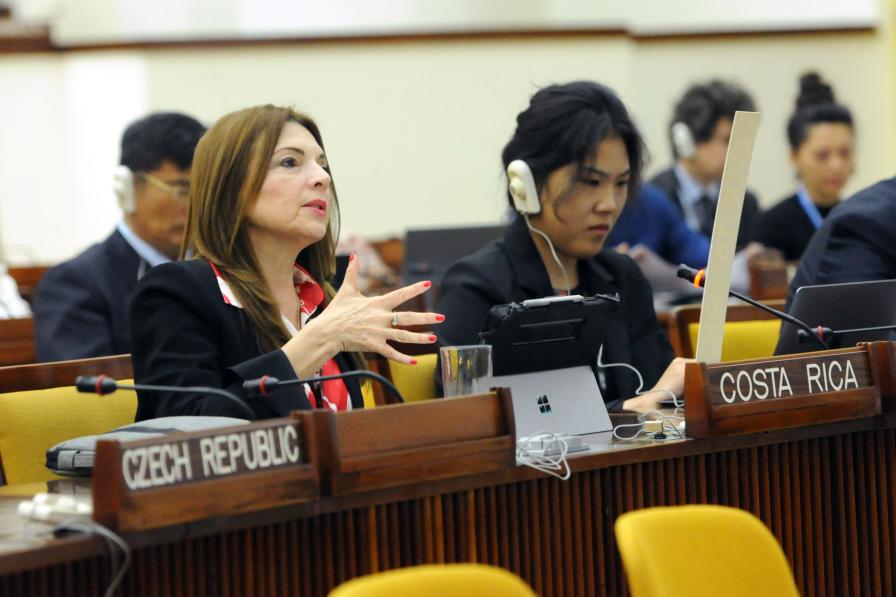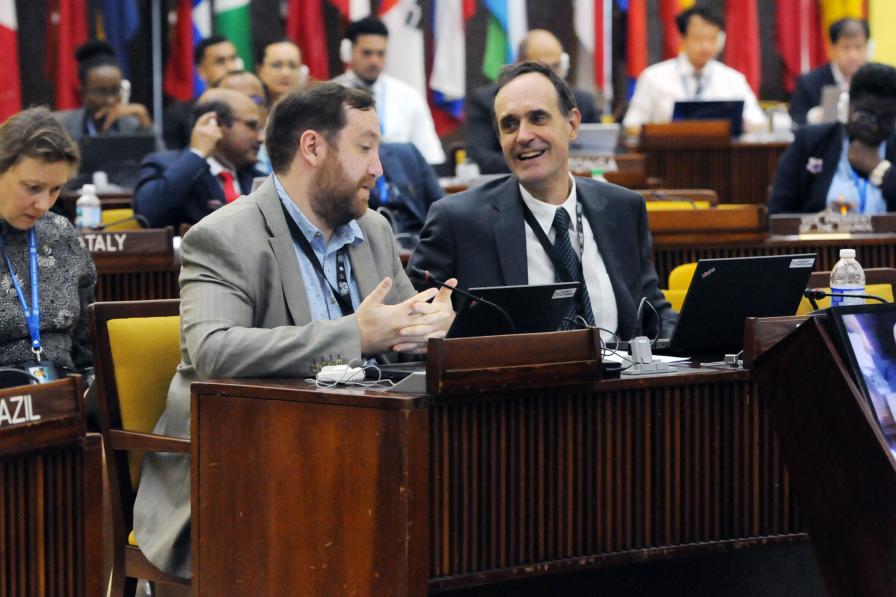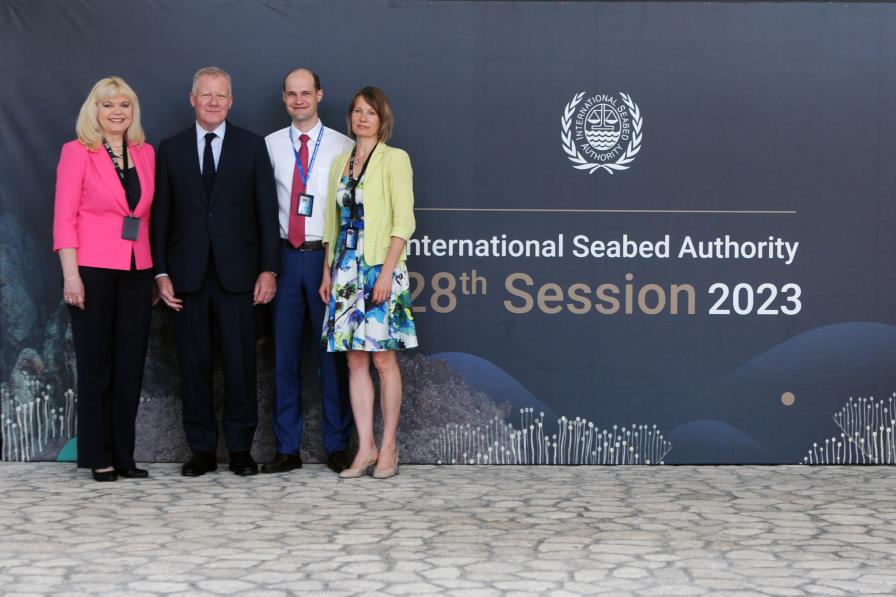The International Seabed Authority (ISA) Council met in an informal setting throughout the day to discuss the President’s text, which includes all draft exploitation regulations that have not been taken up by any of the working groups. Technical negotiations focused on remaining draft regulations under the miscellaneous section of the document, standards and guidelines, annexes and appendices, and terminology. Council President Juan José González Mijares (Mexico) facilitated the discussions.
On the prevention of corruption, one delegation opposed the reference to the Organisation of Economic Co-operation and Development (OECD) recommendations related to anti-corruption and integrity guidelines. In the general procedures, standards, and guidelines part, on notice and general procedures, a regional group proposed to move the definition of communication to the relevant part on use of terms for consistent application throughout the draft regulations.
On the adoption of standards, many delegations welcomed general stakeholder participation during the adoption process. Some delegates queried a provision regarding developing all standards on the basis of best available scientific evidence, given that not all will be based on science. One delegation suggested that the Assembly should also adopt the standards, following their adoption by the Council. One observer emphasized that standards apply to all member states and not only to sponsoring states.
On issuing guidelines, some delegations preferred an option noting that the Legal and Technical Commission (LTC) shall develop guidelines of a technical nature to guide and assist the contractors in the implementation of the exploitation regulations, taking into account the views of relevant stakeholders.
Delegates further addressed annexes on:
- the application for approval of a plan of work to obtain an exploitation contract, focusing on: coordinates, establishing communication lines between contractors and submarine cable operators, and financial resources to meet estimated costs;
- the mining workplan;
- the financing plan;
- the emergency response and contingency plan, discussing references to mining discharges and adjacent coastal states;
- the health and safety plan and maritime security plan, suggesting including procedures on the periodic review and updating of such plans;
- the exploitation contract and schedules; and
- standard clauses for exploitation contracts, suggesting developing definitions for “wrongful act or omission,” “recoverable damages,” and “force majeure,” and further proposing moving provisions related to the termination of sponsorship to the main body of the draft regulations.
On an appendix on notifiable events related to the regulation on insurance, one delegation highlighted that the list of notifiable events is not exhaustive, and stressed the need for a mechanism for reviewing and updating the list. Many delegations suggested textual improvements and underscored the need to avoid duplication.
Regarding the use of terms and scope in the schedule, delegates discussed definitions, including on:
- best available scientific information, with some delegates suggesting replacing the concept with “best available science and scientific information” in line with other international fora;
- best environmental practices, with some highlighting reference to traditional knowledge, and suggesting consideration of the development of a separate definition for traditional knowledge;
- cumulative environmental effect, with delegates agreeing on the need to further develop the definition, and observers suggesting adding reference to synergistic effects and drawing inspiration from the relevant definition under the agreement on the conservation and sustainable use of marine biological diversity of areas beyond national jurisdiction (BBNJ Agreement);
- serious harm, with some delegates suggesting deleting reference to “unlawful” significant adverse change in the marine environment, and one proposing using the definition developed by the Food and Agriculture Organization of the UN (FAO) under the international guidelines for the management of deep-sea fisheries in the high seas;
- exploit and exploitation, with a delegate suggesting reference to test mining; and
- standards and guidelines, with some delegates suggesting reflecting their mandatory and recommendatory nature respectively.
Delegates called for definitions of monopoly, test mining, good and best industry practices, sound commercial principles, environment impact assessment, and environmental impact statement. Observers highlighted the need for definitions of impact and preservation reference zones.
President Mijares thanked all delegates and observers for their contributions and flexibility. He invited written comments by 15 May 2023 in preparation for the second part of the 28th session in July 2023.
An informal group working on the draft decision on the two-year rule met at lunchtime and in the late afternoon in an effort to reach consensus prior to addressing the issue in plenary on Friday, 31 March.
Text written and edited by Asterios Tsioumanis, Ph.D., María Ovalle, and Pam Chasek, Ph.D.
All ENB photos are free to use with attribution. For the 1st Part of the 28th Annual Session of the ISA, please use: Photo by IISD/ENB | Diego Noguera
To receive free coverage of global environmental events delivered to your inbox, subscribe to the ENB Update newsletter.
